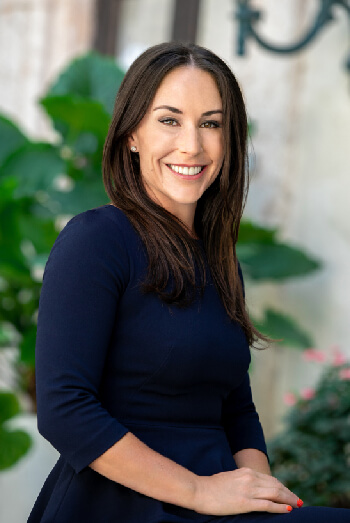Equine-assisted therapy and educational programs can offer transformative experiences for individuals with physical, emotional, or developmental challenges. However, running these programs requires more than just a love for horses and a desire to help—program operators must also navigate a complex legal landscape. From liability waivers and insurance policies to ADA compliance and participant screening, program providers have a duty to ensure safety, legality, and professionalism.
Whether you’re operating in Florida or elsewhere, understanding and addressing these legal considerations is critical to protecting both your organization and the people you serve. Keep reading for more information from Gueronniere Law on how to protect you and your equine business.
Liability Waivers in Therapeutic Contexts
One of the most important legal tools for equine therapy programs is the liability waiver. In Florida, equine activity waivers are governed by the Florida Equine Activities Liability Act (Chapter 773, Florida Statutes), which provides certain protections to equine professionals. However, these protections are not absolute, especially in therapeutic settings.
Therapeutic programs often involve vulnerable populations, such as children or individuals with cognitive or physical disabilities. In these cases, courts may closely scrutinize waivers for fairness and clarity. A well-drafted waiver should:
- Clearly state the inherent risks of equine activities.
- Include specific language required by Florida law, such as the statutory warning notice.
- Be written in plain, understandable language, especially if participants are minors or individuals with developmental delays.
- Be signed by a legal guardian when required.
It’s also important to understand that waivers don’t protect against gross negligence. Programs must continue to maintain high safety standards and comply with all applicable regulations.
Certification and Credentialing Requirements
While Florida does not currently require statewide certification for equine therapy providers, many national organizations provide industry-recognized credentials that enhance program credibility and reduce liability risks. These include:
- PATH Intl. (Professional Association of Therapeutic Horsemanship International)
- EAGALA (Equine Assisted Growth and Learning Association)
- CHA (Certified Horsemanship Association)
Holding such certifications helps ensure that your staff members are trained in areas such as equine behavior, emergency response, participant communication, and ethical standards. It also demonstrates to participants and their families that your program meets professional guidelines, which can serve as a protective factor in the event of a legal dispute.
Insurance Considerations
Equine therapy programs should obtain specialized insurance coverage tailored to their activities. General business liability insurance may not cover incidents involving horses or vulnerable participants. Instead, look for policies that include:
- Equine professional liability
- Participant accident coverage
- Abuse and molestation coverage (especially important when working with minors or dependent adults)
- Property and equipment coverage for stables, tack, and horses
Some insurers require programs to adhere to specific safety protocols or maintain certifications to qualify for or maintain coverage. Be transparent with your insurance agent about the nature of your services, the populations you serve, and your risk management practices.
Participant Screening and Informed Consent
Screening participants is essential to ensure safety for everyone involved. Not every individual is physically or emotionally ready to engage with horses, so a formal intake and assessment process should be in place. This may include:
- Medical clearances from physicians
- Psychological evaluations or therapy recommendations
- Risk assessments for behavioral challenges
Obtaining informed consent is also crucial, especially when working with minors or those with cognitive impairments. Consent forms should clearly explain the program’s goals, the nature of equine interactions, potential risks, and safety protocols. Guardians should be involved in these discussions, and documentation should be maintained in accordance with record-keeping requirements.
ADA Compliance and Accessibility
Equine therapy programs must also comply with the Americans with Disabilities Act (ADA). Even though the program may serve individuals with disabilities, that doesn’t exempt it from legal accessibility standards.
Considerations include:
- Accessible restrooms, walkways, and parking on-site
- Mounting ramps or lifts for wheelchair users
- Clear signage and communication aids for individuals with visual or hearing impairments
- Staff trained to accommodate a wide range of physical and cognitive needs
Facilities that receive public funding or are open to the public are especially subject to ADA requirements. Still, even private organizations can face liability if they deny access to qualified individuals.
Special Considerations for Vulnerable Populations
Equine-assisted services often work with individuals who are legally or socially considered vulnerable, including children, the elderly, veterans with PTSD, or people with developmental disabilities. This elevates your legal responsibility in several key ways:
- Background checks for all staff and volunteers are essential.
- Mandatory reporting protocols should be in place for signs of abuse or neglect.
- Careful supervision ratios must be maintained to ensure the safety of all individuals.
- All staff should be trained in confidentiality, including HIPAA compliance, if working in coordination with healthcare providers.
Having a clear written policy manual and code of conduct can help set expectations and demonstrate diligence in safeguarding participants.
Protecting Your Program—and Its Mission
Equine therapy and educational programs play a vital role in the well-being of countless individuals across Florida and beyond. However, to protect your organization from unnecessary legal exposure, it’s crucial to take a proactive, well-documented approach to legal compliance. From waivers and certifications to insurance and ADA accessibility, every aspect of your program should be designed with safety, professionalism, and accountability in mind.
Working with a knowledgeable equine law attorney can help ensure that your contracts, procedures, and policies meet Florida’s legal requirements and align with your organization’s goals. With the right protections in place, you can focus on what truly matters: using the power of the horse-human connection to make a difference. Contact Gueronniere Law today to take the next step in your business plan.
